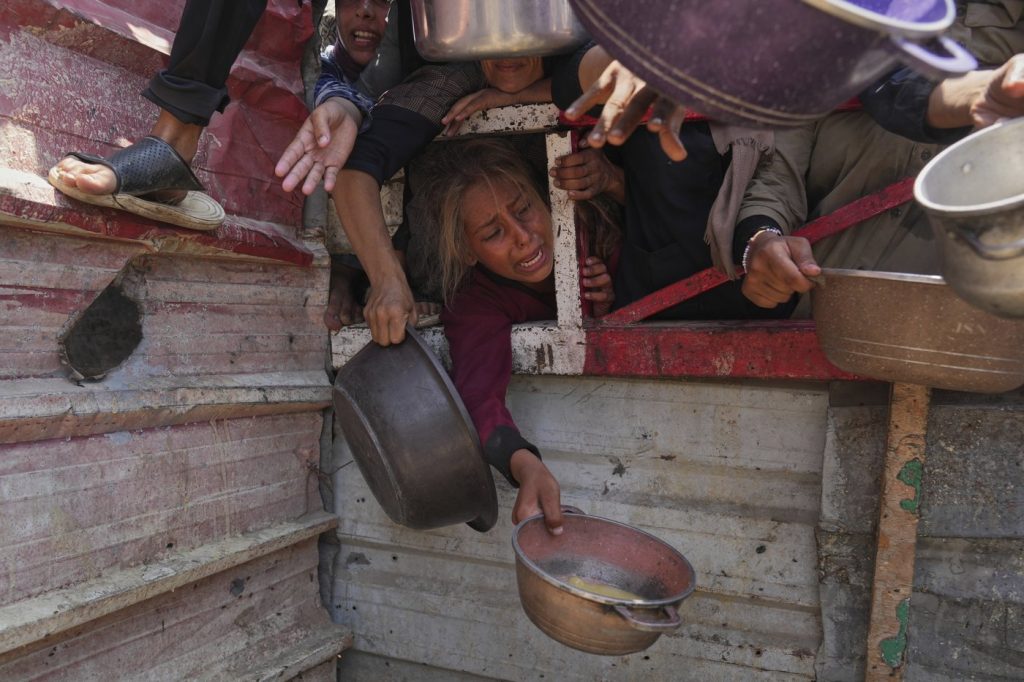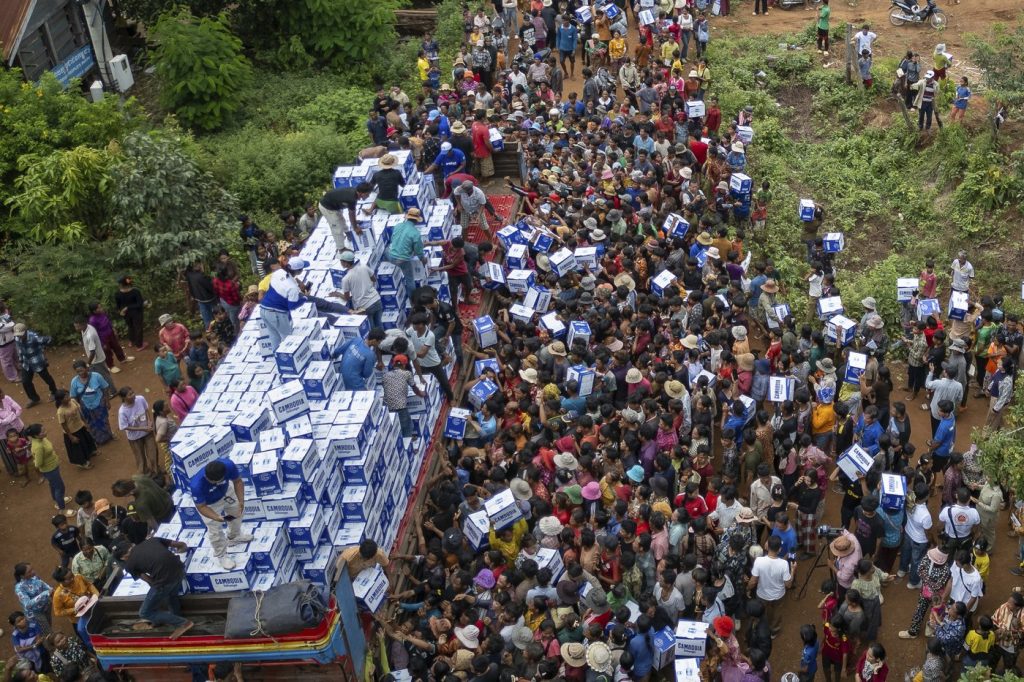DEIR AL-BALAH, Gaza Strip (AP) — Israel's military announced late Saturday that airdrops of humanitarian aid would commence that night in Gaza, alongside the establishment of humanitarian corridors for United Nations convoys. This decision follows an alarming increase in reports of starvation-related deaths within the region.
The military's statement came after months of warnings from experts about potential famine amidst stringent Israeli restrictions on aid. International criticism has mounted, including from close allies, regarding Israel’s actions, as several hundred Palestinians have died recently while attempting to access food distribution sites.
While the military did not detail the locations for the airdrops or the proposed humanitarian corridors, it noted that it is prepared to implement humanitarian pauses in densely populated areas. The Israeli foreign ministry indicated these pauses would begin on Sunday in “civilian centers,” accompanied by the activation of humanitarian corridors.
Despite announcing airdrops, the military emphasized that combat operations against Hamas would continue in Gaza. It insisted there is “no starvation” in the territory, where the majority of the over two million residents have been displaced and rely on aid due to a lack of infrastructure. The Israeli military released video footage purportedly showing airdrops conducted in conjunction with international organizations, detailing the contents of the aid packages, which included flour, sugar, and canned food.
Eyewitness accounts from Gaza paint a grim picture. Health workers report that they have become so weakened by hunger that they resort to using IV drips to continue treating severely malnourished patients. Parents have shown their emaciated children, while wounded men recounted desperate attempts to secure assistance amid gunfire.
In terms of casualties, Israeli airstrikes and gunfire resulted in at least 53 deaths in Gaza overnight into Saturday. Most of the deceased were reportedly shot while attempting to reach aid. Incidents were reported near the Zikim crossing in the north, where crowds waiting for aid were subjected to Israeli military fire. A witness elaborated that people were misled by the sight of tanks and began to run toward what they believed were aid trucks.
In addition to the aforementioned fatalities, later that evening, Israeli forces fired on crowds attempting to access a U.N. convoy, resulting in at least 11 fatalities and more than 120 injuries. Dr. Mohamed Abu Selmiyah, director of Shifa Hospital, confirmed the surge in casualties, indicating that the numbers might increase further.
The airdrops were reportedly requested by Jordan, with expected contents of food and milk formula. The United Arab Emirates stated that it would initiate airdrops "immediately," while Britain announced plans to collaborate with partners for airdrop assistance and evacuation of children needing medical aid.
However, Philippe Lazzarini, head of the U.N. agency for Palestinian refugees, cautioned that airdrops are “expensive, inefficient, and can even kill starving civilians.” He questioned their ability to rectify the escalating starvation situation or prevent diversion of aid. While the Israeli army maintains that aid is permitted into Gaza without restriction, the U.N. reports that military interference and looting impede effective transport of humanitarian supplies.
According to Israeli claims, over 250 trucks laden with aid entered Gaza in the past week. This figure contrasts sharply with the peak of around 600 trucks that entered daily during an earlier ceasefire, now defunct since March. International pressure against Israel is mounting, with over two dozen Western-aligned nations and numerous charity organizations condemning its blockade and the newly instituted aid delivery protocols.
Tragically, the lack of food has led to the starvation deaths of children in Gaza, prompting residents to seek sufficient aid to mitigate their hunger. Simultaneously, the Freedom Flotilla Coalition reported that their aid vessel, the Handala, was intercepted by Israeli forces while attempting to reach Gaza.
Ceasefire discussions between Israel and Hamas remain stagnant, following the recall of negotiating teams by the U.S. and Israel. Israeli Prime Minister Benjamin Netanyahu alluded to the consideration of “alternative options” to negotiations, while a Hamas official claimed negotiations were anticipated to resume next week, dismissing the recall of teams as a pressure tactic.
Reports indicate that over 59,700 Palestinians have perished during the ongoing conflict, with claims that more than half of these casualties are women and children, according to Gaza's Health Ministry. This ministry, operated under Hamas governance, is viewed by the U.N. and other bodies as a reliable source for casualty data.
___
Wafaa Shurafa And Samy Magdy, The Associated Press












